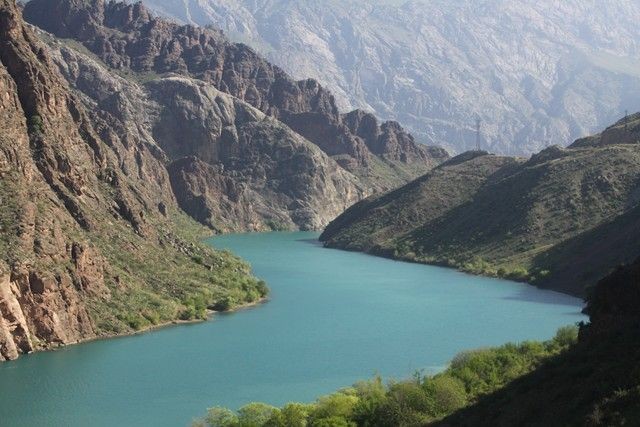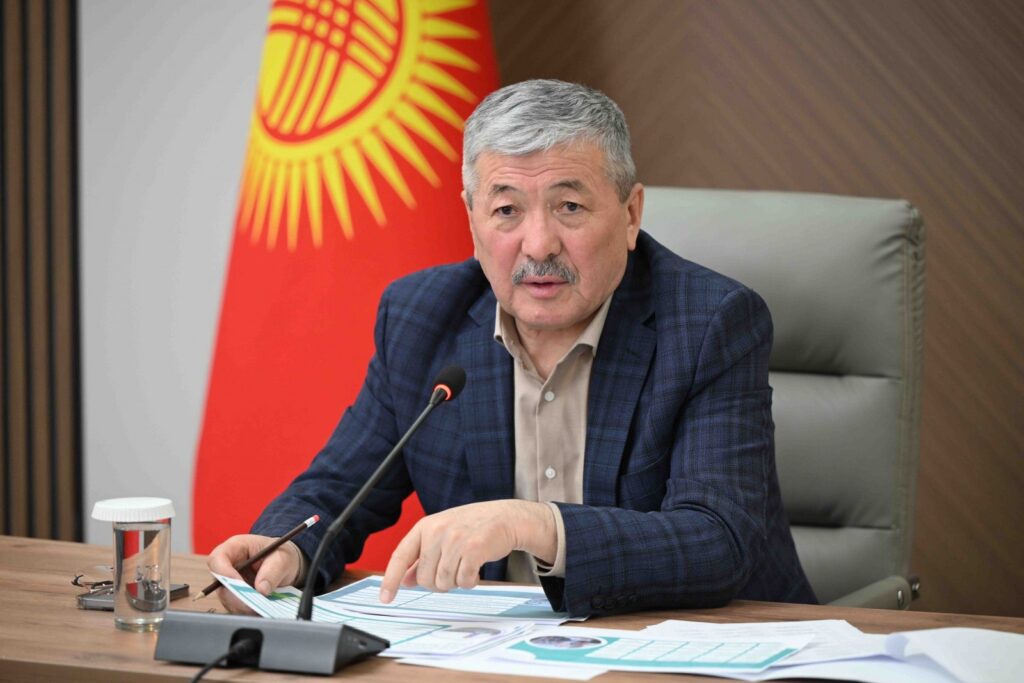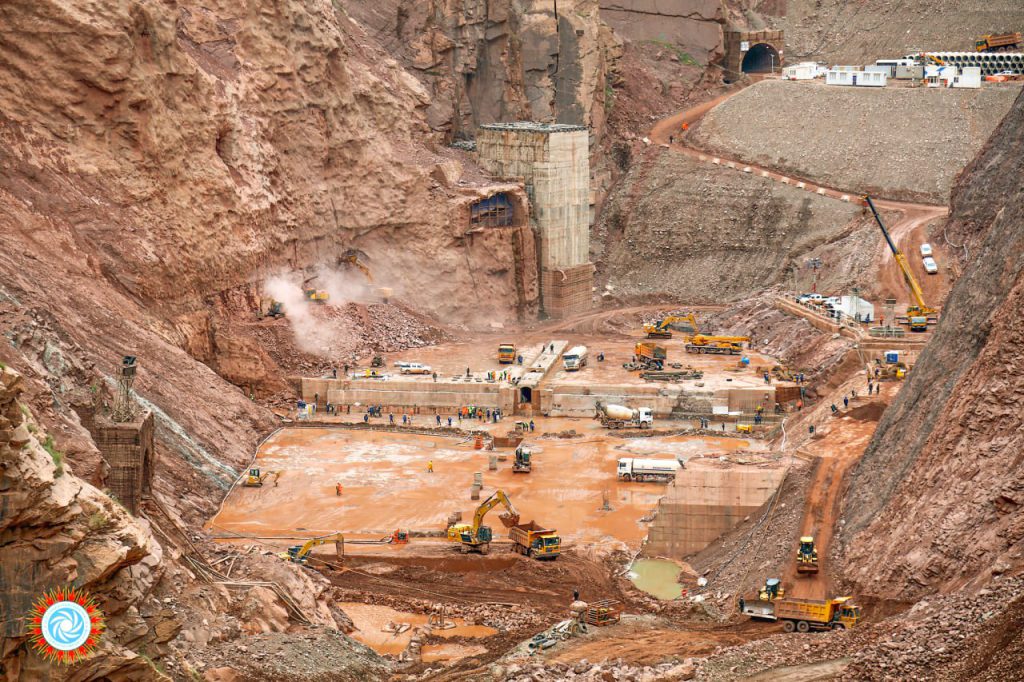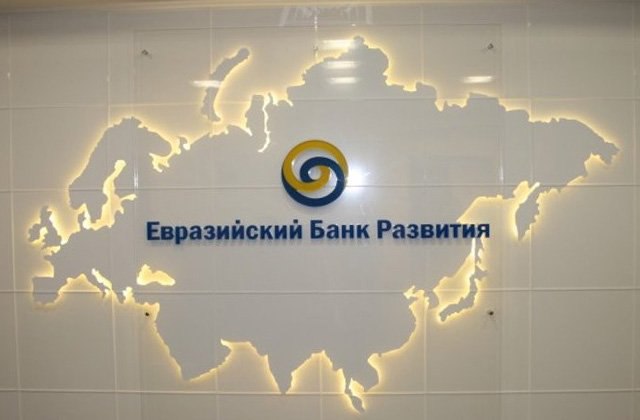BISHKEK (TCA) — The International Court of Justice (ICJ) in The Hague will consider Russia’s RusHydro Public JSC claim against Kyrgyzstan’s Government to return $37 million spent for the construction of the Upper Naryn hydropower plants cascade in the Central Asian country.
The composition of the arbitration court has already been determined, RusHydro CEO Nikolay Shulginov said recently in an interview with the Russian daily Vedomosti. “We are waiting now for the concrete work of the court,” he added.
RusHydro ranks 4th in Russia in terms of power generation and the first in installed capacity. It is the third in terms of installed capacity among hydro-generating companies in the world.
Failed project
In 2012, Kyrgyzstan and Russia signed an agreement on the construction of the Upper Naryn cascade of hydropower plants (HPPs) with a total installed capacity of at least 191 MW, where the Russian side was the only investor.
According to the agreement, the Electric Stations JSC from Kyrgyzstan and RusHydro JSC from Russia were authorized to implement the project. Both companies owned 50% stakes in the authorized capital of the Upper-Naryn HPPs JSC. Russia had to provide money for feasibility studies and 50% of the cost of the project with loans on preferential terms. Kyrgyzstan had to provide land for the project.
It was planned to build the Naryn cascade in six years, and the first hydraulic unit of the main Naryn HPP-1 should have been put into operation in 2016. The Upper-Naryn cascade was to include Ak Bulun, Naryn HPP-1, Naryn HPP-2, and Naryn HPP-3 power plants.
The project was estimated at $425 million in 2012, and the cost was increased to $727 million at the end of 2013.
Since 2016, Russia is waiting for Kyrgyzstan’s reimbursement of funds spent for the construction of the Upper Naryn cascade. In December 2016, RusHydro CEO told Russian media that if Kyrgyzstan does not reimburse $37 million spent on the project the company would apply to international arbitration. As part of the Upper Naryn HPPs project, Russian money was spent to build a camp for construction workers, concrete plants, bridges, water supply, sewage and purification networks, access roads, and transformer substations.
Different points of view
In 2016, Kyrgyzstan terminated the agreement, explaining the move by the lack of project financing solutions, RusHydro CEO explained.
“Negotiations were underway, but there were no results. We work strictly under the intergovernmental agreement of 2012. The Kyrgyz side unilaterally terminated it in 2016 and has now buy out our share — 50% of our joint company, to compensate us for the costs. We legally demand the return of our money — $37 million issued as a loan. We have not included any interest, and ready to make concessions,” Shulginov said.
“We are open to constructive negotiations, but there is no concrete clear movement towards,” he added.
According to the Kyrgyz parliament statement, in 2015 the Russian side did not solve the issue of financing the project due to financial problems and did not find sources of funding for 2016. This led to delays in the HPPs construction. Besides, Russia offered new terms that did not meet the interests of Kyrgyzstan. Instead of a soft loan at 2.5%, the Russian side proposed a commercial loan at 8-10%.
Chairman of the Kyrgyz National Energy Holding Company Azamat Abdykadyrov hopes to reach an agreement with the Russian side outside the court.
Attempts of negotiations have failed so far, he said. Processes in The Hague may last for years, and the Kyrgyz side hopes to solve this issue at the government level, still insisting on conducting a joint audit, but the Russian side does not support this proposal.
No investors
Kyrgyzstan tried to find an investor who would buy RusHydro’s share, but failed, Shulginov said. “We said that we were ready to help find an investor, but received no answer. We are open to constructive negotiations, but there is no concrete clear movement towards,” he told Vedomosti.
Last summer, Kyrgyzstan concluded an agreement on the construction of the Upper Naryn cascade and ten small HPPs with the Czech company Liglass Trading CZ.
According to the agreement, the company had to pay off the $37 million Kyrgyzstan’s debt to RusHydro. However, Liglass Trading did not fulfill its obligations within the designated timeframe, and Kyrgyz Government terminated the contract with the company in September of 2017.
Earlier in 2016, local experts warned that it would be extremely difficult to find a new investor. Knowing the situation around the HPPs, they would not risk investing in the project.
Besides, the profit from the project will be too small due to the current low electricity tariffs in Kyrgyzstan. To raise them to the international market level, it is necessary to increase the incomes of local population which is not possible in the country with a weak economy.
Energy companies to be revalued
A large-scale revaluation of the assets of all eight Kyrgyzstan’s energy companies will be concluded in March 2019, said Renat Tuleberdiev, Director of the State Property Management Fund which owns majority shares in these companies.
Inventory and reassessment of the assets of eight major energy companies (Power Plants, Chakan HPP, National Electric Network of Kyrgyzstan, Vostokelektro, Oshelectro, Jalalabatelectro, Severelectro, and Bishkekteploset) began this year for the first time over the years of independence. This work is being carried out at the expense of a $2.4 million grant from the Asian Development Bank.
In September, a complete inventory of the assets of energy companies was completed, and the State now has data on buildings and other facilities in this sector. Until March, the companies’ market value will be revalued and calculated by experts of an international audit and consulting company.
Does the sector need the Energy Holding?
Following the audit of activities the National Energy Holding, it is necessary to consider the future existence of the company, head of the Audit Chamber of Kyrgyzstan Ulukbek Maripov said.
The National Energy Holding was established in 2015 to effectively manage the energy sector and to make it open and transparent. Kyrgyzstan is using only one tenth of its energy potential while the power consumption is increasing each year, and it is vital to improve the efficiency of the sector. However, the Energy Holding does not perform its tasks, experts say.
“The National Energy Holding is a joint-stock company over other joint-stock companies,” Maripov said. According to its Charter, the main goal of the National Energy Holding is to make a profit.
Meanwhile, the sources of its budget are not defined. For instance, in 2016, the holding’s revenues were 19.5 million soms, and the costs were the same. But the budget is growing from year to year at the expense of the energy companies which transfer certain interests to the National Holding from payments for electricity consumption.
“So we advised the Government to consider whether the National Energy Holding is needed,” Maripov said.









